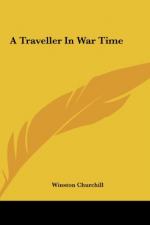IV
By the end of September I had reached England, eager to gain a fresh impression of conditions there.
The weather in London was mild and clear. The third evening after I had got settled in one of those delightfully English hotels in the heart of the city, yet removed from the traffic, with letter-boxes that still bear the initials of Victoria, I went to visit some American naval officers in their sitting-room on the ground floor. The cloth had not been removed from the dinner-table, around which we were chatting, when a certain strange sound reached our ears—a sound not to be identified with the distant roar of the motor-busses in Pall Mall, nor with the sharp bark of the taxi-horns, although not unlike them. We sat listening intently, and heard the sound again.
“The Germans have come,” one of the officers remarked, as he finished his coffee. The other looked at his watch. It was nine o’clock. “They must have left their lines about seven,” he said.
In spite of the fact that our newspapers at home had made me familiar with these aeroplane raids, as I sat there, amidst those comfortable surroundings, the thing seemed absolutely incredible. To fly one hundred and fifty miles across the Channel and southern England, bomb London, and fly back again by midnight! We were going to be bombed! The anti-aircraft guns were already searching the sky for the invaders. It is sinister, and yet you are seized by an overwhelming curiosity that draws




